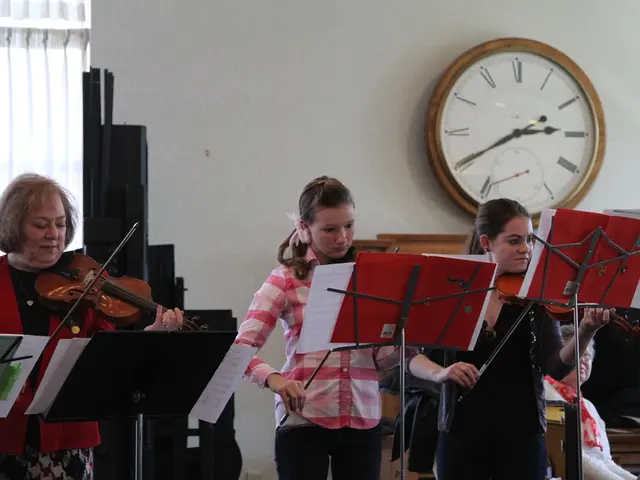European foreign minister declares that distributing €240 billion from frozen Russian assets to Putin isn't feasible as a present.
European Countries Proceed Cautiously Over €240 Billion in Frozen Russian Assets
The issue of €240 billion in frozen Russian assets and the potential extension of sanctions against Russia is currently under debate among European Union (EU) countries. A consensus is needed to keep these funds from potentially being handed to Russian President Vladimir Putin.
At an informal summit of EU foreign ministers in Warsaw, Estonian Foreign Minister Margus Tsahkna stressed the importance of finding a solution to secure this consensus, as the Belgian government, which holds a significant portion of these assets, requires it to avoid handing Putin a hefty sum.
Tsahkna made it clear that under no circumstances should Russia's frozen assets be handed to Putin. He questioned the moral implications of any European leader returning from the June foreign affairs meeting and announcing that the EU had awarded Putin €240 billion as a "reward" for his actions.
Discussions regarding the extension of sanctions and the fate of these assets are scheduled for June 2025. Although Hungary has previously threatened to block the extension of sanctions, the precise outcome remains uncertain.
If Hungarian Prime Minister Viktor Orbán were to carry out this threat, it could result in the financial burden of multibillion-dollar loans to Ukraine being shifted to G7 countries and the EU, as these loans were secured by the revenues generated from the frozen Russian assets.
Estonia has advocated for the complete seizure of Russian assets by G7 countries rather than merely freezing them, citing legal difficulties in the EU's contingency plan. However, other European countries remain hesitant due to concerns about potential legal challenges, financial risks, and systemic consequences, including impacts on the euro as a reserve currency.
Russia has retaliated against threats of asset seizure by enabling the seizure of Western assets within its jurisdiction. Euroclear, a financial intermediary based in Belgium, is one of the institutions starting to redistribute small amounts from restricted Russian funds to Western investors affected by sanctions.
As the EU and G7 continue their discussions, they must balance legal, financial, and geopolitical considerations. The goal is to find a solution that allows financial support to Ukraine, without handing Putin a potential windfall or destabilizing the global financial system.
- The European Union (EU) is cautiously discussing the potential extension of sanctions against Russia and the €240 billion in frozen Russian assets.
- A consensus among EU countries is needed to prevent these funds from being handed to Russian President Vladimir Putin.
- Estonian Foreign Minister Margus Tsahkna emphasized the importance of securely addressing this issue, as the Belgian government, which holds a significant portion of these assets, requires it to avoid rewarding Putin.
- Discussions about the extension of sanctions and the fate of these assets are set for June 2025, although Hungary's stance remains uncertain.
- If Hungarian Prime Minister Viktor Orbán were to block the extension of sanctions, the financial burden of multibillion-dollar loans to Ukraine could shift to G7 countries and the EU.
- As the EU and G7 continue their dialogues, they must carefully consider legal, financial, and geopolitical implications to provide financial support to Ukraine, while avoiding handing Putin a potential windfall and stabilizing the global financial system.








